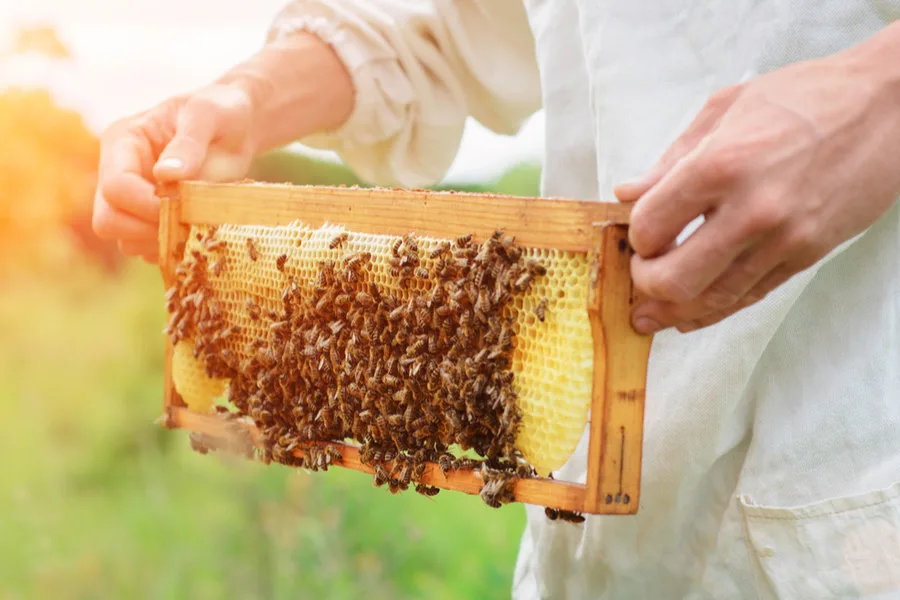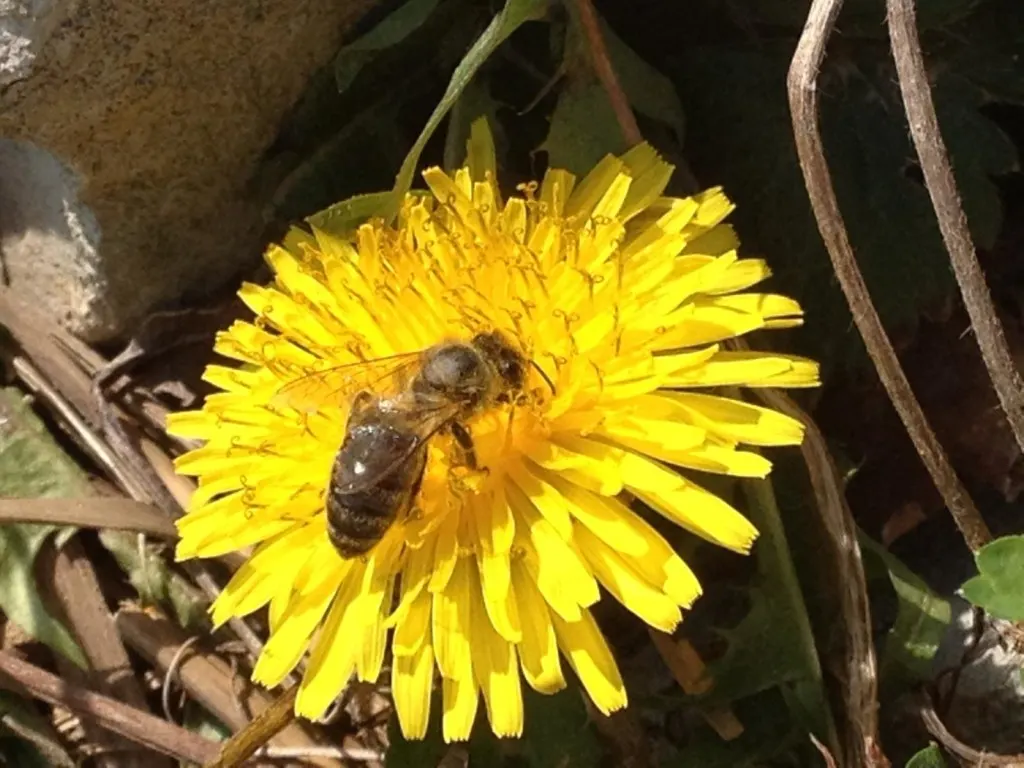Our two honeybee hives at the farm provide us with so much more than just incredible honey.
They also help to pollinate many of the fruit trees, vegetable crops and flowers in our garden and landscape. In addition, they are simply fascinating and beautiful creatures to watch.
I think by now everyone realizes how much honeybees bring to all of our tables. They are pollinating machines.
Without them in the picture, our choices of fruits, vegetables and many other fresh foods would be extremely sparse. And that is putting it lightly.
But sadly, our bees, like many others all over, are in serious trouble. It doesn’t take a proverbial “Rocket Scientist” to see that honeybees are dying off everywhere at an alarming rate.
The Struggles Of Our Honeybee Hives
This spring will mark the fourth time in the last 5 years that we have had to replace at least one of our two hives due to a colony collapse.
It is the second time during that span that both hives have not made it through the winter. Our hives were absolutely thriving last year and then suddenly, without warning, began to collapse.
It is the same process almost every season. The numbers begin to fall, the colony grows weak, and they are unable to make it through winter.
We are certainly not professional beekeeping experts, nor scientists, entomologists or biologists.

But we are a couple of bee keeping enthusiasts who have struggled mightily over the last few years to keep our bees alive from season to season. And it is certainly not from a lack of effort.
In fact, we have tried to help them in every way possible. We have moved our bees twice to new locations to help provide maximum protection.
We’ve tried winterizing their hives in new ways to provide better protection from the elements.
We’ve attempted several different methods of hive management as well, including feeding later and earlier in the year to help build colony strength.
But still they are dying off. As are the hives of so many other beekeepers across the country.
There are a thousand theories as to why it is all happening and at the head of the list is the massive overuse of pesticides. What is sad is that many of them never need to be sprayed in the first place.
Do we really need to spray lawns five times a year to prevent a few weeds from popping up?
Do we need to spray crops every time we see a single bug take a few bites out of leaves?
I love watching our honeybees grab nectar each Spring from the dandelions in our yard.
But then I wonder how many others bees are probably dying from having the unfortunate luck of landing in a just-sprayed yard, or a giant farm field being sprayed with insecticides.
So what is the point of this article? Well, to help bees. Because I have to tell you it is absolutely disheartening to watch them struggle and die every year.
The simple fact is that we all need to do our part to help bees. Whether it’s planting a field of wildflowers for them to have sources of nectar, or spraying less – or not at all.
Maybe it’s even trying to help by keeping a few hives in your own backyard. We need the honeybees! Great Beekeeping Books : The Backyard Beekeeper – Storeys Guide To Keeping Bees
Here’s to a healthy year for the honeybee hives! – Jim & Mary.
If you would like to receive our DIY, Gardening and Recipe articles each week, you can sign up to follow the blog via email in the right hand column above, “Like” us on Facebook, or follow us on Twitter. This article may contain affiliate links.


